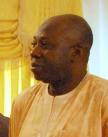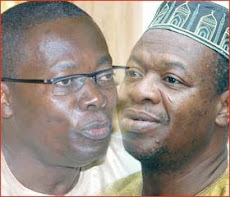It is official. The Police Service is the most corrupt public institution in Ghana. Surely, it is not a record our peace officers would be proud of. But the conduct of the men and women in black, throughout the country, leaves no one in doubt that the average policeman and woman may not pass the integrity test.
According to a research conducted by the Ghana Integrity Initiative, the Ghana chapter of Transparency International, the Customs Division of the Ghana Revenue Authority runs a close second. We do not believe we need any ghost to lecture us on the underhand dealings that aid the average officer of Customs to grow rich at the expense of the state.
The report cited almost all spheres of national life as suffering from the bug of corruption, with the Executive, Parliament and Judiciary perceived as corrupt institutions in this country.
The report, read by Executive Director Vitus Azeem at a media encounter in Accra, indicted all spheres of national life. In addition to corruption being endemic, Ghanaians perceive corruption to be on the increase.
The Chronicle is worried about the turn of events that suggest that no sphere of public life has escaped the canker of corruption. For the police, especially, the indictment does not help in the service’s commitment to building a new image.
Apart from officers extorting money from the public and corrupting the system, the operation of the service itself, is fraught with corruption.
It is not too long ago, when eight police officers were marched from the Central Regional headquarters in Cape Coast to the national headquarters in Accra, simply because a deputy Minister had called the Inspector General of Police, after an encounter with policemen and women on legitimate duty on the road.
One officer was interdicted even before a full-scaled inquiry could be conducted into the case. Over the weekend, information filtered through that a police officer had been engaged in an altercation at the Komfo Anokye Hospital in Kumasi with security guards of the medical institution.
Even before an investigation could be conducted into the case, the Inspector-General sent the young police officer home, on the basis that his action had led to the death of a patient at the hospital.
As our front page story today indicates, there has been no death occasioned by the incident involving the young officer.
The Chronicle learns that the officer in mind had on a number of occasions questioned the impartiality of his superiors, who are quick to jump to the defence of National Democratic Congress sympathisers in the Ashanti Region.
In other words, political considerations might have played a big role in the young officer’s problems.
Evidence is emerging that since Mr. Paul Tawiah Quaye took charge of directing the police in 2009, there have been several incidents which give credence to the fact that the service is becoming politically compromised.
The Chronicle is urging the Inspector General of Police to take the initiative of cleaning the Service before he is himself is swept away with the political current gathering storm in readiness for the Tsunami of 2012.
The Akans, the largest tribe in this nation of ours, have a very interesting proverb: SE WOTE SE OBI ABODWE EHYE A, SA NSUO GO WO DEA HU. If you are told that someone’s beard is on fire, reach out for water to protect your own.
Customs and other institutions named in the report would have to do well by safeguarding their image. Corruption is on the rise in Ghana. The Chronicle would like to point out that it is one fact we could all do without.
Source: The Ghanaian Chronicle













No comments:
Post a Comment